Institutional policies and codes of conduct
HI operates as an independent NGO. It draws up its guidelines and sets its strategic focus based on its status and mission. It voluntarily makes commitments alone or as part of a network. At the same time, it ensures compliance with the regulatory and professional requirements for the sector. It relies on a number of internal and external documents to do this.




Lebanon, Beirut, July 2021. Mohammed, 14, from Syria, takes part in a physiotherapy session at Musawat, a physiotherapy centre, partner of HI, in Mar Elias Refugee Camp. © T. Nicholson / HI
HI's Institutional Policies
HI has developed a number of institutional policies which provide an essential reference framework for our statutory mission.
These policies apply first and foremost to HI’s members and staff, whether at the Federation or in our national associations. However, they also include provisions that apply to the other stakeholders in our activities, especially our public, private or associative partners, and companies that provide us with goods and services.
To meet membership requirements of the International Council of Voluntary Agencies (ICVA), a global network aiming to eliminate sexual exploitation within the UN and NGOs, HI has developed its own policy for protecting its beneficiaries against sexual exploitation and abuse.
Through this policy, HIl expresses its determination to combat the sexual exploitation and abuse of aid beneficiaries by humanitarian workers. It is therefore implementing a series of measures intended to reduce risks on its programmes, whatever the context.
The policy describes the eight principles that must be respected in order to protect our beneficiaries against exploitation and sexual abuse. It also provides the corresponding disciplinary measures.
Its scope is very wide, because it applies to:
- To all HI staff, whether expatriates or national, throughout the federal network.
- At all times, i.e. during and outside of office hours and during periods of leave.
- To all people or entities who have signed a contract with HI: consultants, day labourers, suppliers, partner organisations, etc.
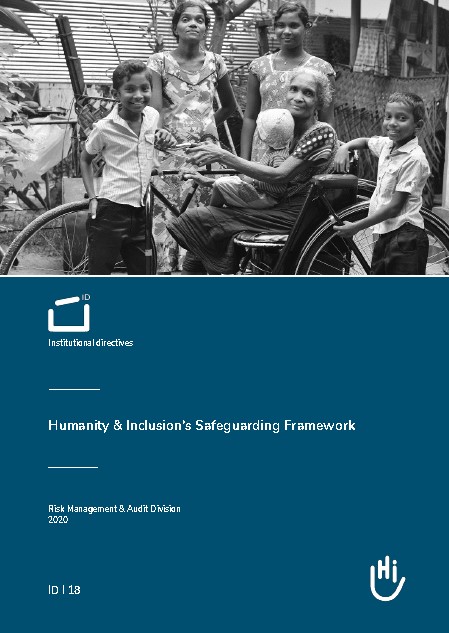



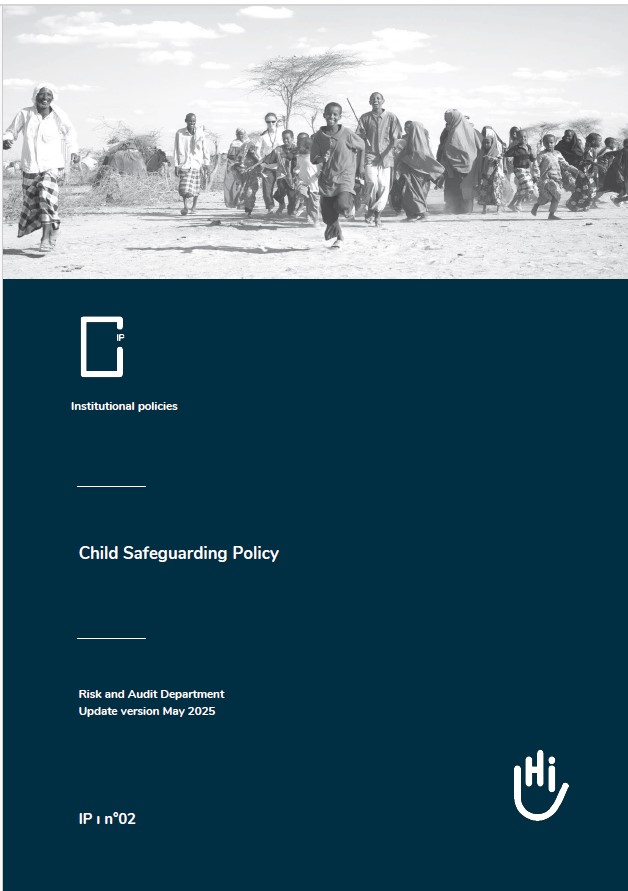



Disability, Gender and Age Policy
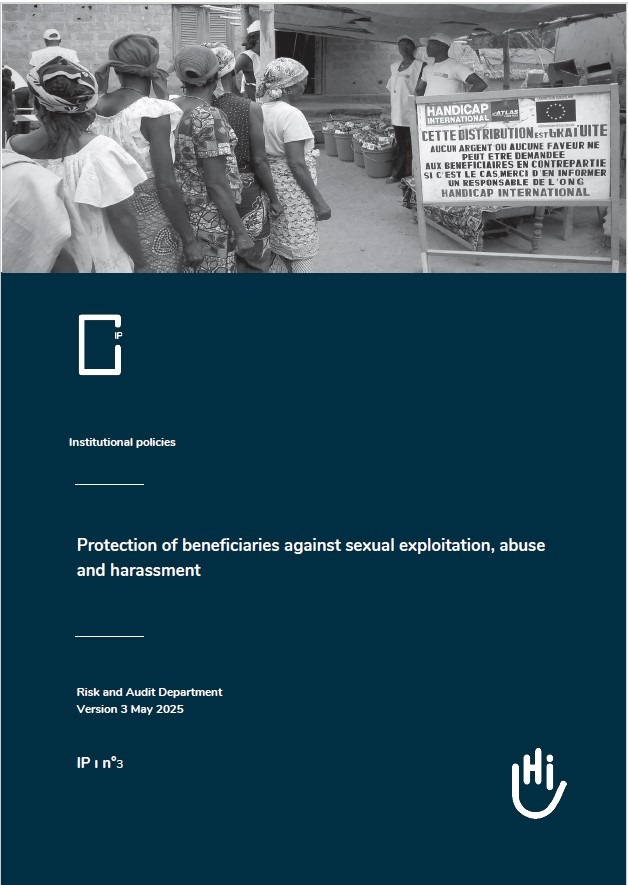



Protection of Beneficiaries from Sexual Exploitation, Abuse and Harassment Policy
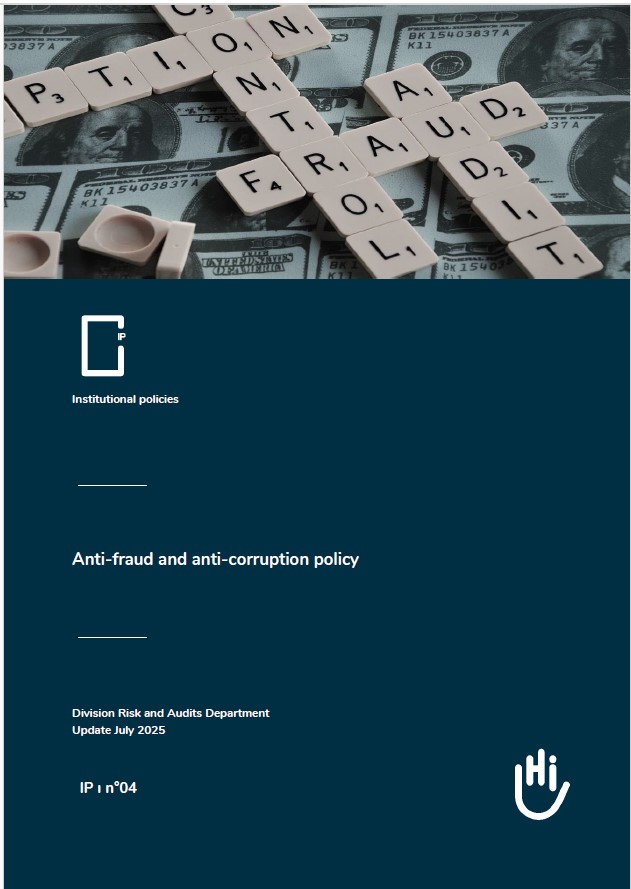



Anti-Fraud, Bribery, and Corruption Policy
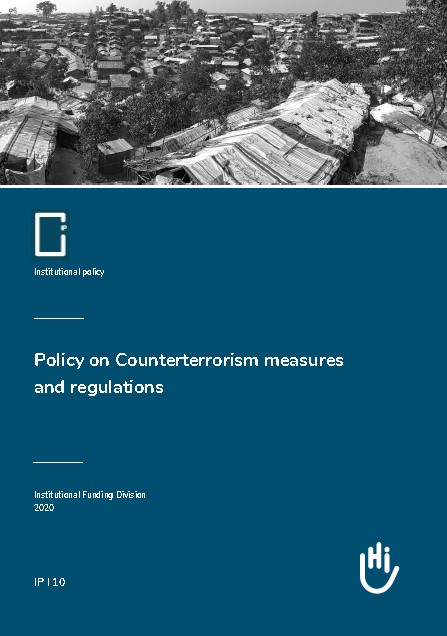



Counterterrorism Measures and Regulations
Safety and Security Policy
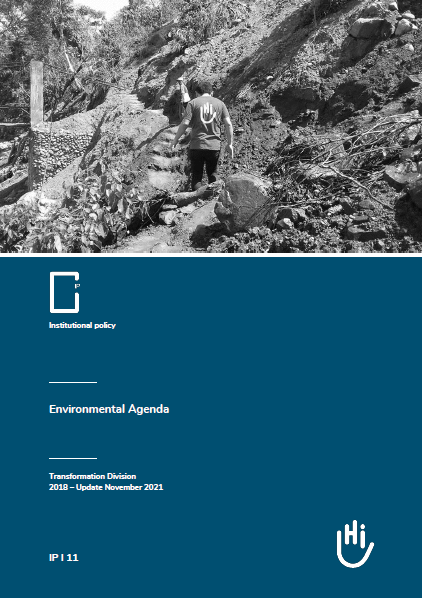



Environmental Agenda
HI recognizes the impact on the environment that its interventions can cause. The organisation adheres to the principle of not harming and therefore commits itself in terms of the environment to limit as much as possible the negative impact that its actions may have on the environment.
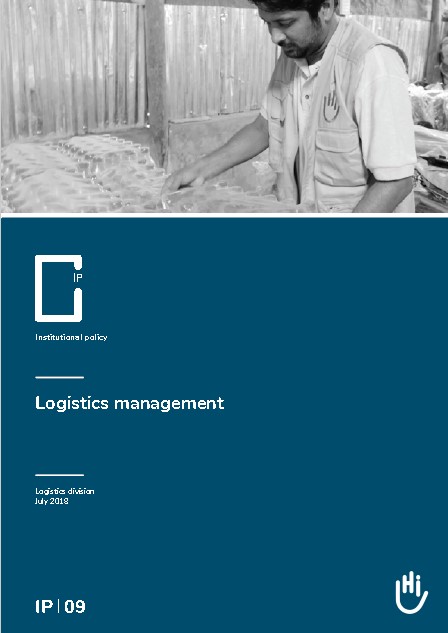



Logistics management
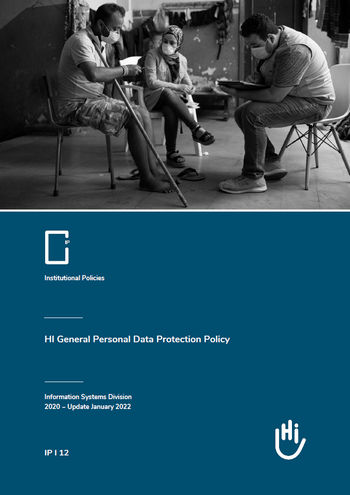



HI General Personal Data Protection Policy
HI's code of Conduct
The "gender", "protection of beneficiaries" and "child protection" policies are completed by a Code of Conduct which applies to every person being likely to represent HI (employees, board members, family members accompanying international staff, consultants, service providers and partner organizations, trainees, voluntary workers). It applies during working hours and outside working hours.
Driven by our value of integrity, this Code clearly outlines our expectations of our staff and volunteers. It aims to protect all beneficiaries of HI's direct and indirect actions, and people from communities in contact with these actions, especially children, women, people with disabilities and anyone in a vulnerable situation. When local legislation allows it, it is integrated in contracts and rules of procedure.
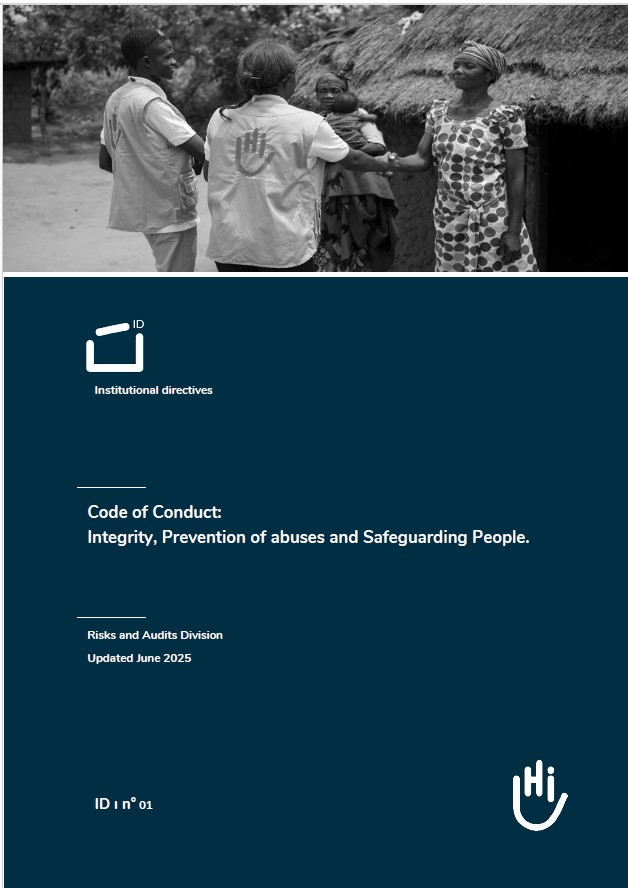



HI's Code of Conduct
Prevention of abuse and safeguarding
External Codes of Conduct
HI also adheres to different Codes of Conduct. These voluntary commitments contribute towards the collective dynamics of the international aid and development sector :
Code of Conduct for the international Red Cross and Red Crescent movement and NGOs
Code of Conduct on messages and images - CONCORD
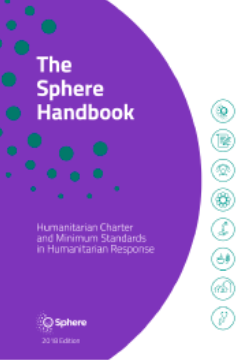



Humanitarian Charter and Minimum Standards in Humanitarian Response (SPHERE)
Photos : © A. Surprenant/Collectif Item/HI






